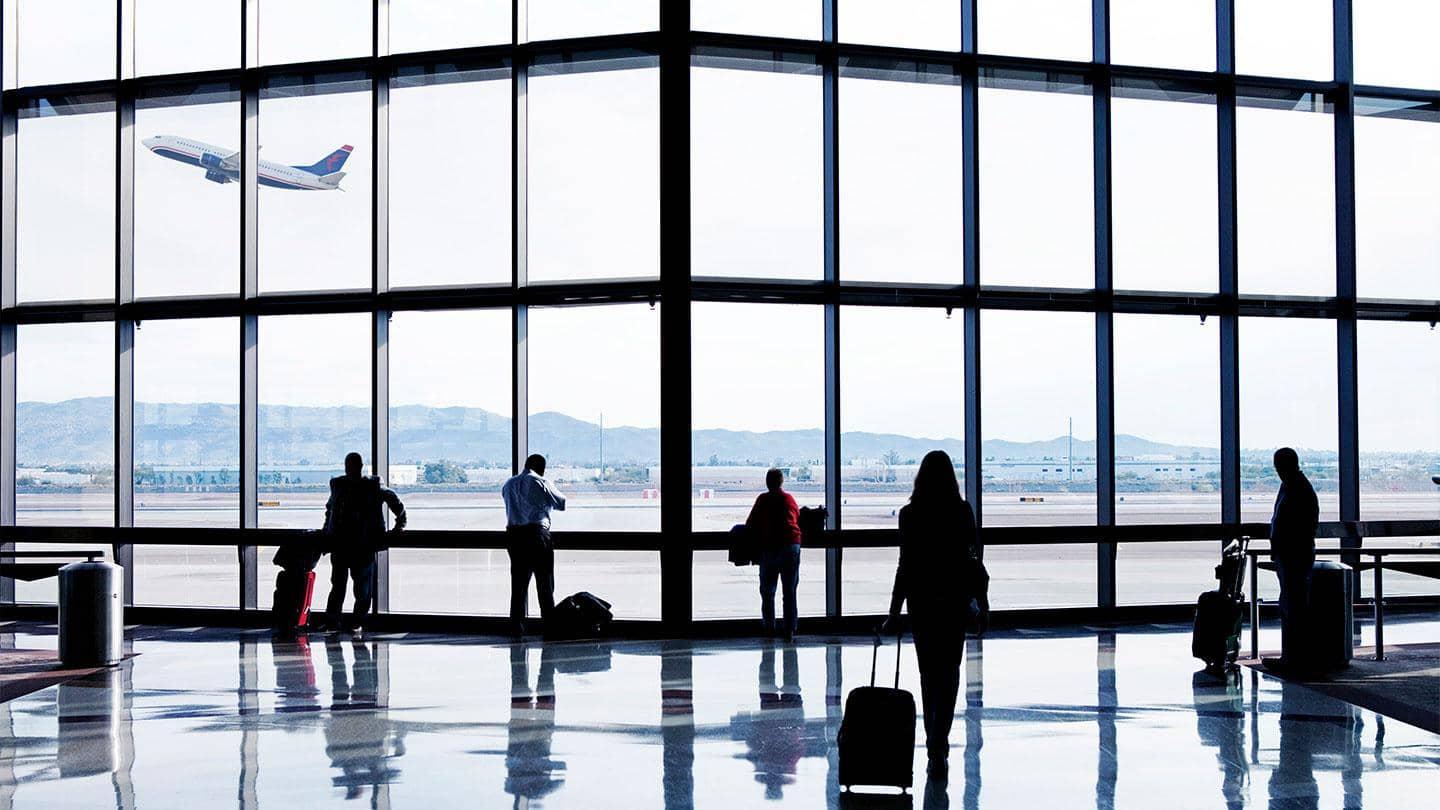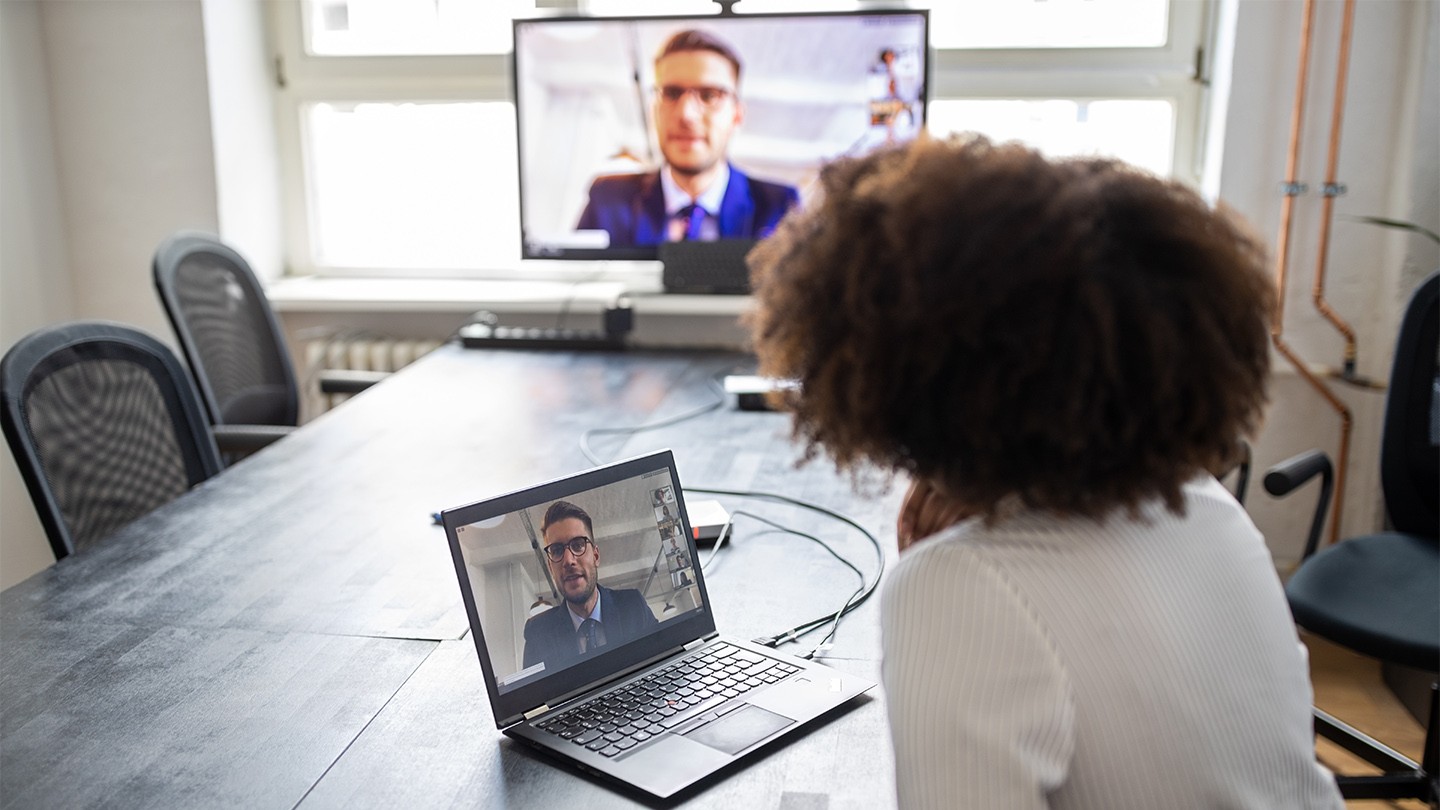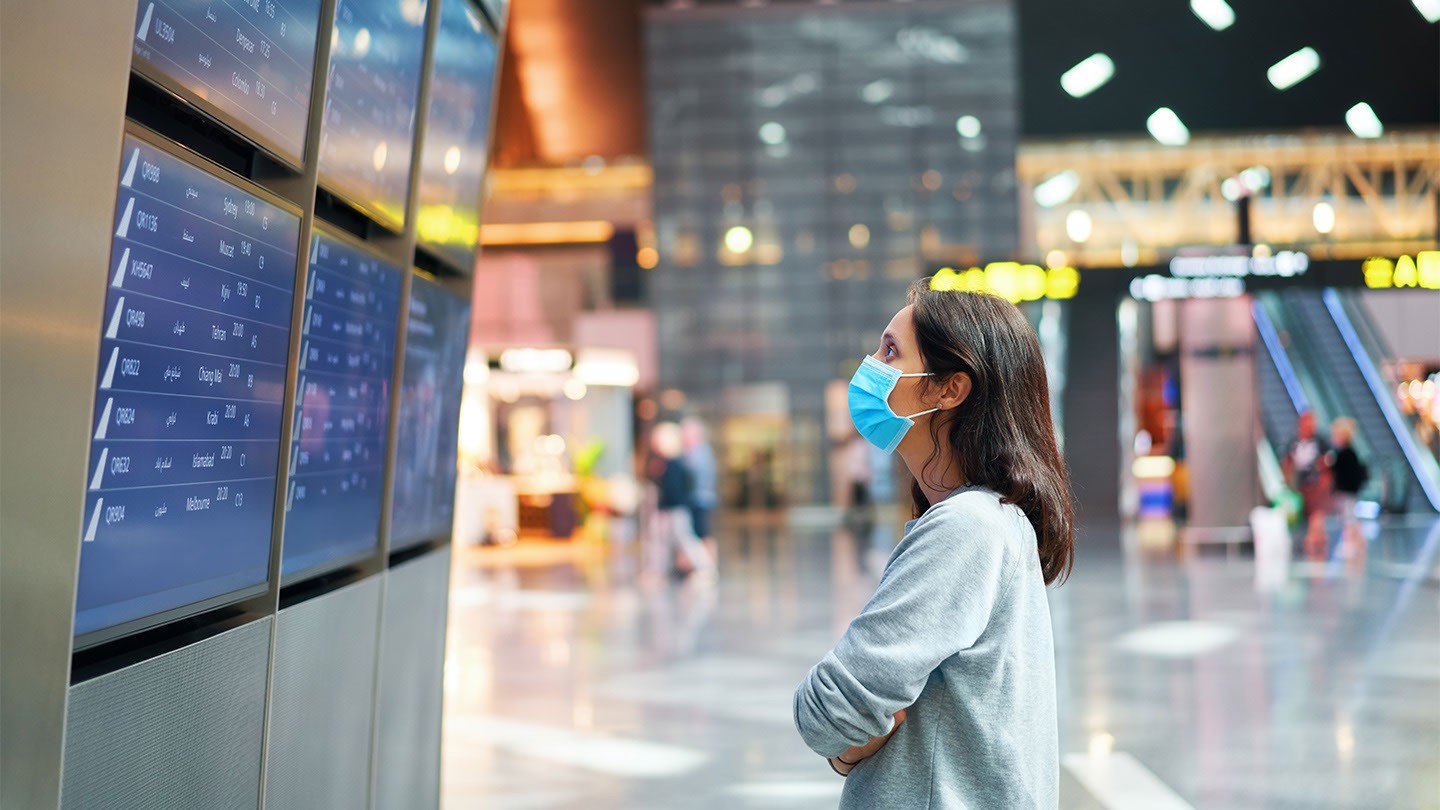
Impact
Will COVID change the way we travel?
International air travel was one of hardest-hit industries when the pandemic struck – but will the impact be long-term? The 2021 Equity Gilt Study by Barclays Investment Bank’s Research team suggests a permanent shift in people’s ability to move across borders without friction, and explores how it could affect tourism and the global economy.
The boom in passenger air travel – from 1bn scheduled trips in 1990 to 4.5bn in 2019, according to the International Civil Aviation Organization (ICAO) – was one of the great social changes of the millennium years.
But as borders began to close in March 2020, air traffic plummeted. The International Air Transport Association calculated that international passenger demand fell by 75.6% compared to 2019, with future travel bookings in January 2021 still down 70% compared to the previous 12 months.
This year’s Equity Gilt Study, compiled by leading Barclays Research analysts, reports that hopes of a swift resumption of pre-pandemic air travel trends have repeatedly been dashed, as governments intervene to limit the spread of new virus variants.
Pre-pandemic, low-cost airlines were instrumental in making air travel more affordable, spontaneous and accessible, unlocking tourism growth beyond the major air hubs. In the future, extra paperwork and administrative costs, some of which will relate to vaccination status, could end up pushing the price of regular air travel out of the reach of the mass market.

The end of business class?
‘Business class’ will also be impacted, says the report. In 2019, business travel accounted for 21% of the global travel and tourism industry’s revenues, according to data from the Organisation for Economic Co-operation and Development. A year later, says the Global Business Travel Association, spending in this category more than halved – a vastly greater drop than the sector’s last ‘big hit’ of 7.5% in 2009.
With many businesses newly accustomed to global meetings on remote platforms, business travellers are likely to reassess how much flying they really need to do. The Equity Gilt Study suggests that these behavioural changes may be difficult to reverse, and the $1.3tn business travel market will be among the last to recover from the pandemic. This will be especially true for long-haul journeys where firms take account of higher costs and the risks of entering uncertain environments – alongside growing environmental awareness.
As the study points out, the ramifications of lost air travel fan out to impact the wider economy, with financial services and higher education just two sectors that rely on the ability of staff or clients to move freely across borders. Hotels and restaurants will also take a hit with lower levels of higher-spending business customers.
But the aviation industry will be the most obvious sector to feel the squeeze. Corporate travellers make up 12% of airline passengers, but can account for up to 75% of a carrier’s profits.
Emerging markets to struggle
Domestic air travel also reduced during COVID-19, but falls were far lower than the international equivalents. And in the USA, weekly average spend by travellers had come close to rebounding to pre-pandemic levels by January 2021, even with international arrivals at 20% of previous levels.

The implied boost for in-country tourism is likely to only offer balm to the economies of already-wealthy countries, the study suggests. Emerging markets nations that typically welcome more foreign tourists will struggle to fill the gap created by an absence of international travel, and retailers more broadly will have to cope with the grounding of international passengers.
In the decade prior to the pandemic, spending on international travel has doubled, against a 40% rise in global GDP. Magnet destinations such as Bali, Phuket and Dubai have suffered severe economic damage in the absence of tourists, and retailers may need to compensate by expanding overseas as international tourist flows struggle to return.
Many questions remain about how air travel – which has changed so much in accessibility, price and convenience over the past generation – will recover from an unprecedented year, facing new environmental challenges alongside increased biosecurity and border concerns.